Our advisors and mentors are more than creative business experts—they are working creative professionals who have experienced the highs and lows of carving out a career in their field. They utilise this expertise, and the knowledge gained from helping dozens of clients, to guide the next generation of creative entrepreneurs. This month, we’re interviewing Nick Bolton.
Nick is a regional filmmaker based on the NSW South Coast, who is passionate about growing the local screen sector as a Board Member of Screen Illawarra. He is an award winning strategic thinker in the digital and online video space, with an entrepreneurial nature and proven business management experience. A seasoned entrepreneur, Nick has built several content and production businesses over the last fifteen years, most notably the online video distribution company Viocorp (now Viostream).
Q: Tell us a little about yourself and your areas of expertise.
My day job is running the production company Ten Alphas, which specialises in commercial and creative content. We work for major enterprise clients like Salesforce and Google, making content like TV commercials, case studies, brand content, social media, animation, and explainers etc. We also make our own films, and have been heavily rewarded at the highest level, including being longlisted for an Oscar for the film Mate, and winning an AACTA award for Finding Addison (for Franscisca Braithwaite and Blue Sparrow Entertainment). I’m also a teacher at AFTRS and Sydney Film School, and I’m an actor represented by Victoria Jackson at Phoenix Talent.
My specific industries or creative fields are screen, theatre, and online content. Much of my twenties and thirties were spent in the online space, especially in live streaming and video platforms, and doing a lot of the early social media integration. For about fifteen years I produced one or two longform theatre productions a year, often directing and performing in them as well, but these days it’s mainly screen work.
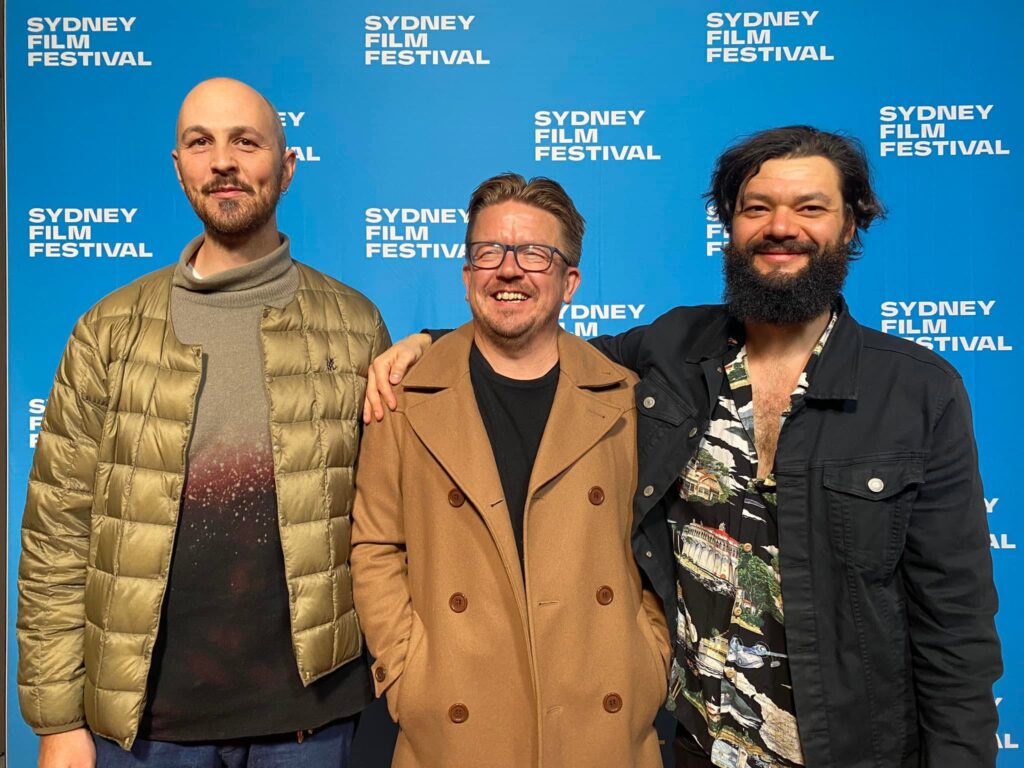
Q: What unique perspective or skill set do you bring to the table?
I can straddle both the creative and business sides of life. I’ve got a lot of experience of what works, and what doesn’t, that I’m able to pass on. I spent fifteen years working in commercial advertising agencies, and that gave me a very good grounding in conceptualisation, account management, business development, client management, and all that good stuff like ROIs and KPIs.
But I’ve also got a very strong creative streak as a writer and creative producer – producing is mainly what I do. I’ve also got the experience of having set up, or been an executive in, five or six businesses. Two have done very well, and four haven’t. And I think that’s given me an edge in terms of knowing what works. And what doesn’t!
“I would say that a business must have revenue, too many creative practitioners just do it as a side hustle and don’t really bring in revenue – a business should be profitable as well.”
Q: What are you passionate about in your creative work?
I like content that has a social impact, and many of my projects or campaigns now tackle bigger issues like image-based abuse, end of life and palliative care, domestic violence, and even the death penalty.
“I’m very much about doing some good for the world. As I get older, I’m moving away from the consumer and commercial advertising space and into this area where I can explore the emotion or the humanity in a project. That’s what really draws me into it.”
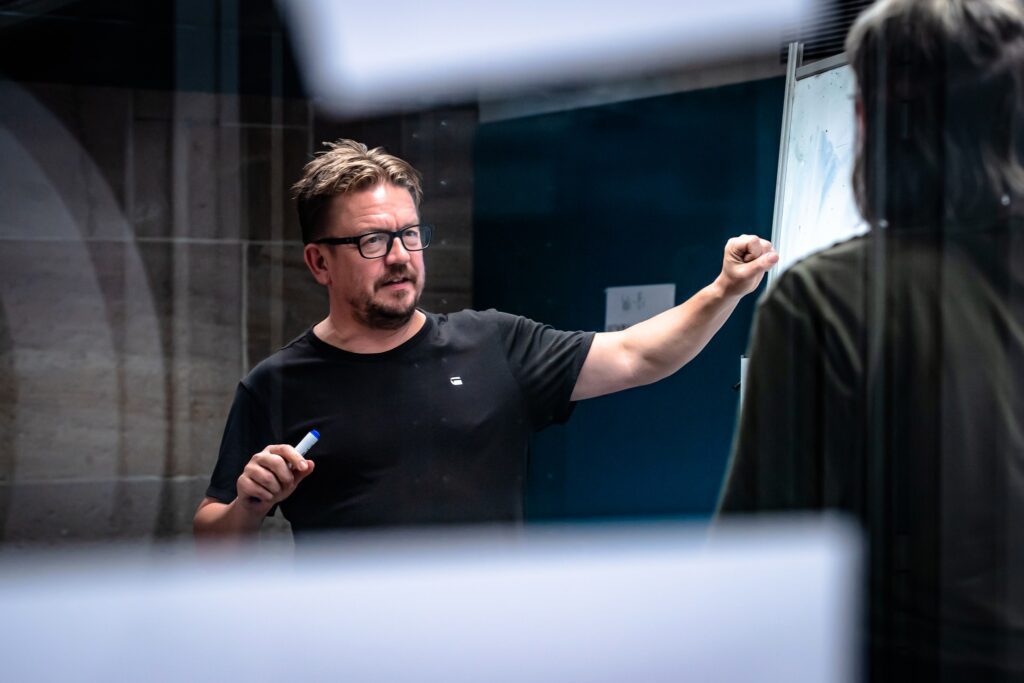
Q: What do you most enjoy about being a business advisor?
Well, for me, it keeps me on my toes, and I get inspired by my clients. Very often I am giving some advice and internally thinking, ‘gosh, I should do this for my own business’. It stops me from being complacent. And I’m inspired by their optimism, especially at the start of their journey. And I like to see that get realised.
In the early days of anyone’s journey, it’s often very overwhelming, and there’s so many things to do. You have to be in charge of sales, marketing, operations, product, finance, legal, HR, and often creatives don’t have this experience, so I can help them kind of see the wood from the trees. I can use my experience, good or bad, to see where they’re going wrong quite quickly.
“I’m a big believer in putting plans in place, but doing it in a steady way. It’s very easy to come up with ideas and goals and objectives, but execution is very difficult when you are limited with time, budget and resources.”
I will often say, ‘look, just park that for now, and we’ll come back to that in three or six months time. Just do a few little things as you go along.’ Having a measured approach is something I think I’m very good at, and seeing a client reach their potential is really beautiful.
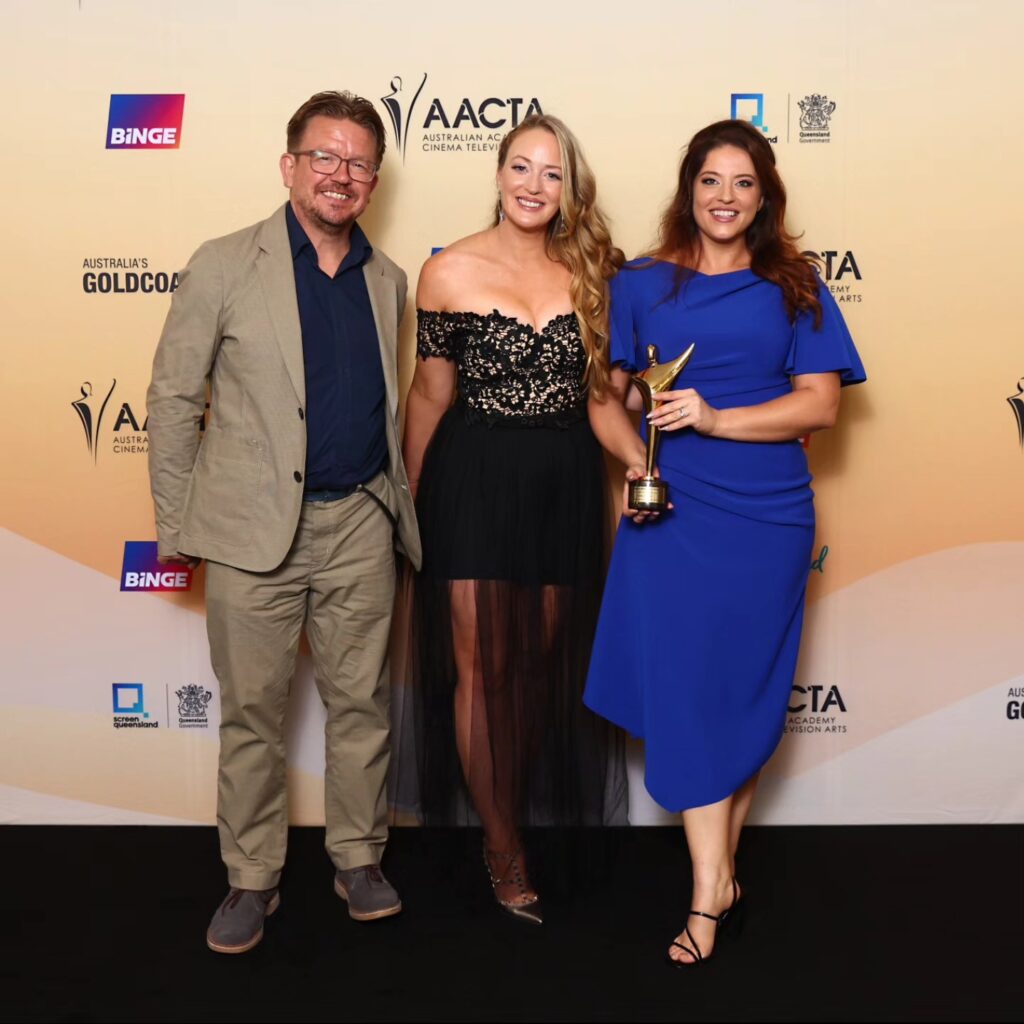
Q: Can you tell us about a success story from your advisory or mentoring?
One was the film Finding Addison. Fran Braithwaite was a very new emerging filmmaker in Wollongong. She’d only made one short film, and she’d heard of me through my role as the chair of Screen Illawarra, and asked for help on a new half hour drama about a 35 year old woman realizing she was adopted and reclaiming her identity.
I mentored Fran all the way from that very early idea and script development through to funding and then through all the production stages and into distribution. I helped her put a strategy in place for that pathway and to see her get nominated for an AACTA Award, and then win it, was just amazing.
Another is Tristan Banks, an acclaimed children’s writer who was a bit overwhelmed with all the stuff he had to do in terms of not only writing, but selling and marketing, and also teaching and guest lectures for kids in schools – he just had too much on. So we worked together to figure out where his capacity was, draw a line in the sand, and get better at the art of saying no. By exploring how to schedule his time a little bit better to make it more effective – like bundling tasks together – Tristan was happier and more creative, and he’s gone on to win many awards and build a wonderful career as a writer for kids.
Q: What is your approach to building strong relationships with clients?
I’ve learned to treat every interaction like it’s the first one, so I’m never complacent about our work together. I like to focus on keeping their creative work in progress while developing their sales and marketing activity. I think that keeping in touch regularly and consistently is absolutely crucial, especially when a particular project is being worked on. At the same time, I’m often thinking about what’s happening further down the line, really doing the research on their business, so I can be alert to any ideas or opportunities that come up and might be helpful.
Q: What trends are you aware of that are affecting the creative industries?
On the positive side, last year it was ‘survive until 25’, and I believe this year we’re seeing an upturn. I think there are several reasons for that. Interest rates coming down has loosened the corporate and consumer purse a bit, and I think that’s a sign that we’ve almost paid off the massive bill incurred by COVID. The recent federal election was, and will continue to be, a big thing for all creatives. Whether you vote Labour or not, there’s consistency of government for a while, and that is good for economic planning.
A major negative, of course, is AI, and while it’s being used more and more, it’s often at the expense of services that we would outsource to freelancers. I think it’s important to recognise that AI reduces the number of hours creatives can bill while simultaneously enabling clients to bring work in-house. While we might love using it to make our own work more efficient, we have to recognise that it’s going to affect all of us.
Q: How do you see the future of the creative industries evolving?
I do feel there is a sort of anti-technology movement growing. More and more of us are a bit fed up with doom scrolling, social media trolling, and increased prices and subscriptions on ever more platforms. There’s a bit of technology fatigue kicking in. I think people are, especially in the arts and crafts area, really enjoying that shift as people seek out handmade or crafted quality, bespoke purchases, and one-off products or services. I think that we’re going to see a move toward seeing the value of premium or bespoke content when we’re surrounded by easy and ubiquitous content for consumption. We still want something that feels special.
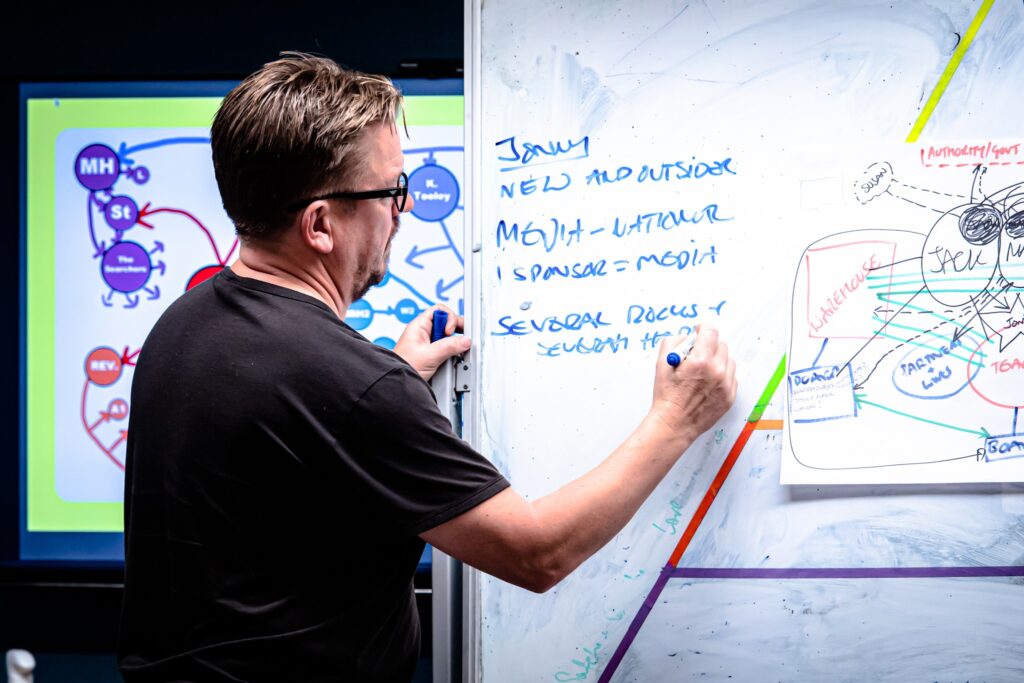
Q: What’s your advice for aspiring creative entrepreneurs?
I always say the first year of business is like going backpacking for a year. You’ve got a vague idea of your destination, but how you get there is very different to how you imagined. You’ll go in many different directions. I remember when I was eighteen and backpacking around the world I had to call Dad for some help – I underestimated how much money I would really need.
I think it’s the same in business. In year one, we often overestimate the amount of revenue, and underestimate the costs. So, when thinking about your first year in business, double your costs and halve your revenue. Having said that, year two will be better, because if you’ve looked after your clients, you get repeat work. And repeat work is beautiful.
It might sound boring, but planning and paperwork are necessary before you start spending money. Get a business account and put, say, $1,000 in there, or whatever you’re prepared to put in. Then, do your research very thoroughly. Get on top of your product, competitor analysis, cash flow and what your forecast is going to be. And if you’re in a sector like screen, music, or design, have a plan for how you’ll continue to invest in the tools of your trade – the better the tools, the better your growth will be. You can start with the basics, but you’ll need to upgrade sooner than you might think.
I would also say that I’m not a fan of the side hustle. For me, it’s worked out better when I’ve gone all-in. That’s when I’ve seen the results I’m aiming for. If you’re trying to do it all in ten hours a week outside of a busy day job, you’re not going to put in enough time to make it work.
But my main advice is my mantra – little and often. As a solo sole trader or freelancer, you’re in charge of sales, marketing, operations, finance, HR, and legal, and you have to attend to each pillar of the business. It might sound weird, but having an organisation chart for your business can help you separate out the different parts of your business. Be disciplined and respect each pillar and you’ll keep on top of it. Make time for one social media post a week, an hour or so for finances, and by giving a little to each you can be more available to be responsive to things like sales, client care, or quoting etc. That’s where your income is, and the more able you are to respond to important things like a quote quickly, the stronger your success rate will be.
“I think that to be able to enjoy your business, you can’t neglect any part of it. That’s where the pain is – when something hasn’t been managed and it suddenly needs a lot of work in a short time and you aren’t across the details.”
For me personally, I’m inside my business 24/7, which isn’t for everyone, but then I also take more annual leave than I would if I had a corporate job. I love being in charge of my own destiny every day. I love working out what I want to do, how I’m going to do it, and then making it happen. I could have earned a lot more money working for other people, but it makes me very happy.
You can find out more about Nick and the work he does at www.nickbolton.com.au
—
Keen to know more about how you could book up to 8 hours of free advice, guidance, and mentoring with Nick? If you’re based in NSW you can do this now through Service NSW Business Connect If you’re elsewhere get in touch with our team at hello@creativeplusbusiness.com
Visit our Business Connect page to learn more about the program or get in touch with Creative Plus Business team for tailored help.
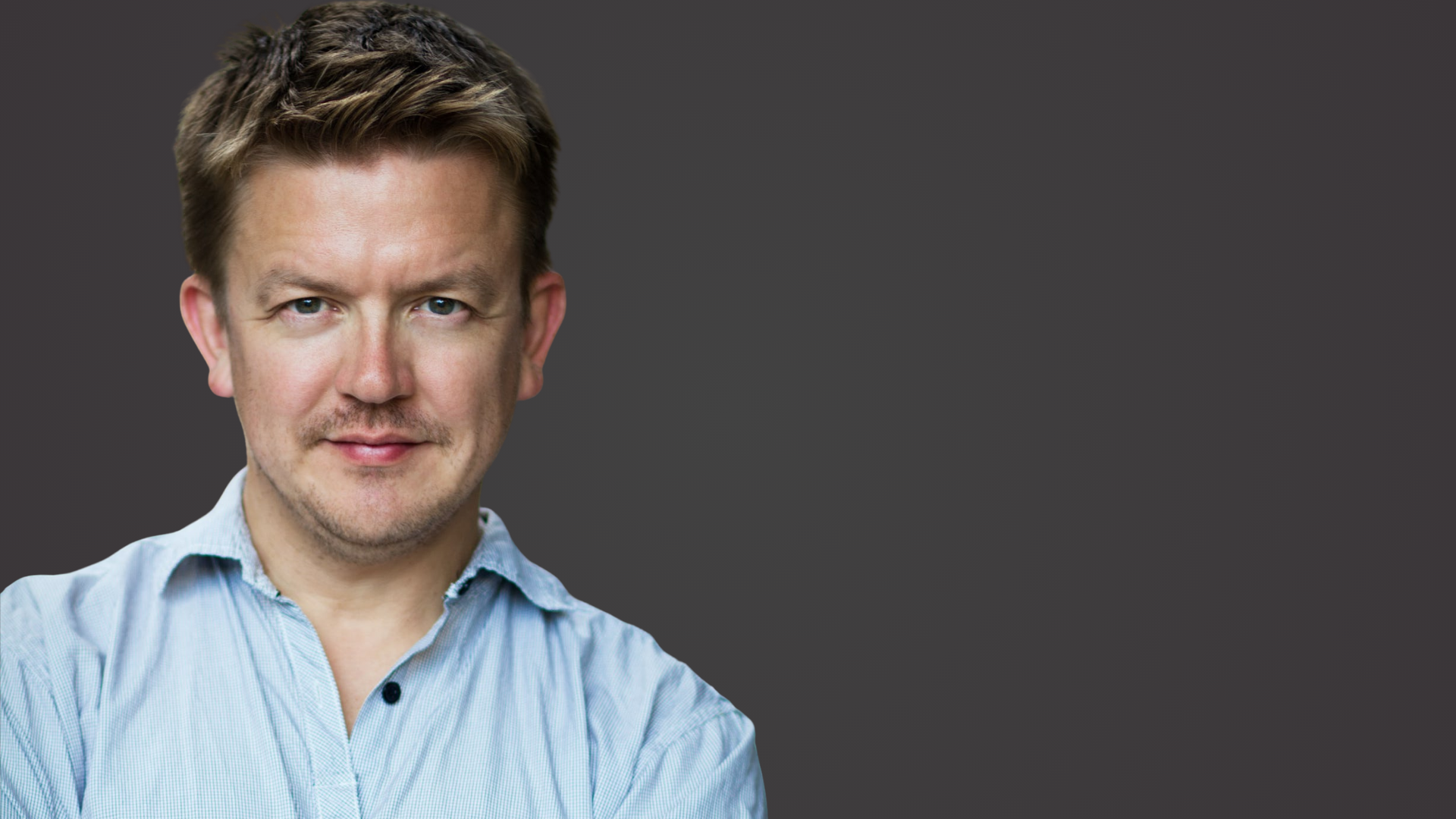


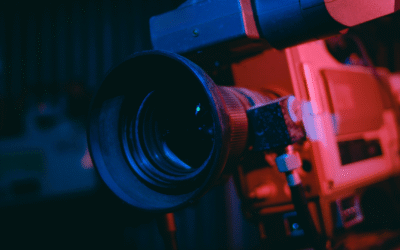

0 Comments